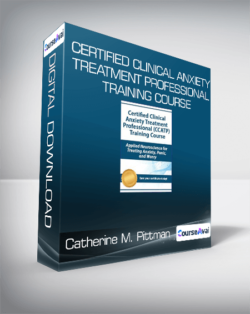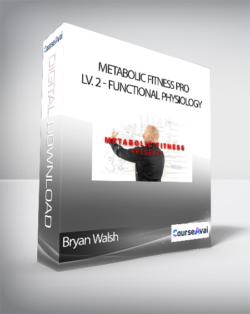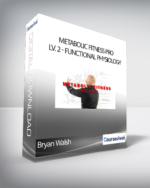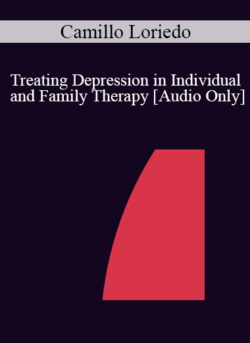Delivery: Digital DownloadPurchase Bryan Walsh – Metabolic Fitness Pro – Lv. 2 – Functional Physiology courses at here with PRICE $797 $187Bryan Walsh – Metabolic Fitness Pro – Lv. 2 – Functional PhysiologyMost Physiology Courses Aren’t Taught Well…This One is DifferentMost physiology courses teach all of the systems in a silo – learn about the kidneys, then the lungs, then the heart – and keep doing that until you’ve taught the entire body. There is rarely, if any, discussion how systems integrate and interact with one another, or how the information relates to a clinician.Another problem with most courses, is they don’t look to the scientific literature on the best ways to teach physiology.For example, research papers have been written suggesting that instead of trying to teach hundreds of different concepts in physiology, spanning over 1,000 pages for the average physiology text book, “core principles” should be focused on so to better create a foundation for understanding physiology.That is exactly what our course does – in 20 hours of video lectures, you’ll learn a TON, but you’ll also learn “core principles” that will allow you to more easily learn advanced physiology later on.In fact in Module 1 alone, we teach cover levels of organization, cell architecture, cell membrane components and physiology, cellular junctions and connections, membrane transport, and cell-to-cell communication – exactly what the “core principles” say we should teach!One research paper surveyed medical school students and suggested a combination of writing on the chalkboard and PowerPoints is their preferred method of learning physiology. This was backed by yet another paper, demonstrating that this is the best combination for learning!If you haven’t noticed yet, our white board drawings are the focus of our courses, with PowerPoints sprinkled in.In other words, we teach EXACTLY how science demonstrated is the best way to learn! There really is no comparison between this course and other physiology courses.We don’t rely on or promote memorization. Instead we encourage you understand concepts and “core principles” so to truly learn, internalize, and apply the information.We Don’t Just Teach Physiology, We Teach Functional PhysiologyFunctional Physiology is quite simply usable physiology. It is physiology that you can use clinically.Everyone knows there is theory, and there is reality, but they don’t always mix very well, especially when it comes to education and a clinical practice.Functional Physiology is different. Here you’ll learn how to relate what you learn to a clinical practice. For example, you’ve inevitably heard about the blood brain barrier, but do you know what cells create it or what it actually looks like? Have you heard that certain supplements might be supportive of the blood brain barrier? Armed with the information in this course you’ll know and understand more about the blood brain barrier than the majority of practitioners, which gives you the opportunity to help even more people.And the blood brain barrier is just ONE of hundreds of examples in this course.Course DetailsModule 1Cellular Physiology (3.6 hours)In this module, we go deep into a subject that is imperative for practitioner to know. Topics covered include: body water compartments, architecture of the cell, cell membrane physiology and components, cellular junctions and connections, membrane transport, osmosis, resting membrane potential, and cell-to-cell communication.Module 2Tissues (1.5 hours)Most people don’t think much about tissues, but there is so much to know! This module covers the need-to-know information about epithelial tissue, connective tissue, and muscle tissue, in easy-to-understand ways that will never have you wondering the role or function of any tissue in the body.Module 3Muscle (2.2 hours)In this popular module you’ll learn skeletal muscle anatomy and a detailed look at skeletal muscle contraction. You’ll also learn about force-length relationships and twitches in skeletal muscle, including concepts about motor units and different types of skeletal muscle. You’ll also lean about smooth muscle anatomy and contraction, as well as cardiac muscle.Module 4Nervous System Intro (2.1 hours)Have you ever seen an intro over two hours long? That’s because in this module we will be covering how the nervous system is organized, parts of a neuron, types of neurons and nervous system terminology, neuron action potentials, neurotransmission, neurotransmitters, and long-term potentiation.Module 5Central Nervous System (4.5 hours)This module is incredible. Four and a half hours of learning about neuroglial cells, meninges, cerebral spinal fluid, anatomy of the spinal cord, overview of the brain, cerebral lobes, basal ganglia, hypothalamus, thalamus, cranial nerves, cerebellum, brainstem, Broadmann areas, reticular formation, and reflex arcs. After watching this module, you’ll be a changed person. Module 6Peripheral Nervous System (2 hours)In this important module, you’ll learn about sensory receptors, as well as spinal cord tracts. (Yes, we know tracts are in the central nervous system, but did you see how long that module was already? We include them here.) Tracts include ascending tracts, such as the dorsal-medial-lemniscus, spinothalamic and spinocerebellar tracts. Descending tracts include the cortocospinal, vestibulospinal, and reticulospinal tracts.Module 7Autonomic Nervous System (1.3 hours)In this final module for this course, we cover the basics of the autonomic nervous system, sympathetic and parasympathetic pathways, as well as adrenergic and cholinergic receptors.Sales PagePurchase Bryan Walsh – Metabolic Fitness Pro – Lv. 2 – Functional Physiology courses at here with PRICE $797 $187
 The Integral Soul Journey with Terry Patten
₹28,220.00
The Integral Soul Journey with Terry Patten
₹28,220.00
 Catherine M. Pittman – Certified Clinical Anxiety Treatment Professional Training Course
₹18,426.00
Catherine M. Pittman – Certified Clinical Anxiety Treatment Professional Training Course
₹18,426.00
Bryan Walsh – Metabolic Fitness Pro – Lv. 2 – Functional Physiology
₹31,042.00






